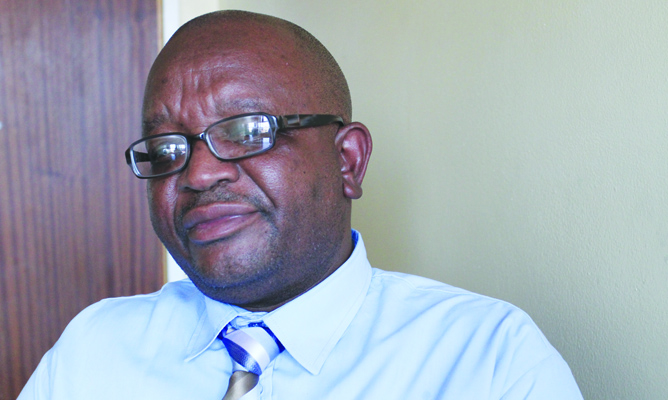
On March 1, the so-called “Super Tuesday”, the 2016 campaign’s biggest day of US presidential nominating contests, primaries were held in 12 states. For the Republicans, candidate Donald Trump came out tops rattling the Republican establishment that considers him reckless, undiplomatic, inexperienced, and hence an embarrassment, if not a long-term threat to the interest of the Grand Old Party (GOP).
The White House has also been disturbed with President Barack Obama publicly stating he was sure the tough talking Republican would not make it to the Oval Office come January 2017. He said he was putting his faith in the American people to vote wisely. Even cousins to Americans across the pond; the usually serene British when it comes to American politics, are alarmed.
But then this is America. It is not the president that decides who his successor is. Neither is it the role of the American Joint Chiefs of Staff. The American people do. The Chinese, who are usually a guarded lot on foreign affairs, may be even more worried than the British. The Asian markets have of late become bearish and jittery. And that may have something to do with the prospects of the brash billionaire sitting in the oval office come 2017.
The developments across the Atlantic hopefully have not gone unnoticed in Harare, Zimbabwe’s capital city. The little nation, alongside Uganda may be tempting targets for a president Trump to flex his massive muscle. Zimbabwe may have wasted the seven years the cerebral and dovish Obama has been in power.
Behind the scenes other nations such as Iran and Cuba have made remarkable progress in mending their relationships with the world’s sole super power. Warm and cordial relations have also improved between China and the US. The same has happened with Russia, despite the annexation of Crimea by Russia. The two countries are working together well in Syria, diplomacy being the tool of choice. So impressed are the Russians by the achievements of their diplomats that an annual holiday in honour of the corps has been proposed. Will Zimbabwe be inclined to do the same some day?
The toiling masses who bear the brunt of strained relations with the West but deserve better, yearly invest in the ministry of foreign affairs. The returns from that investment, however, may have been paltry. While poor traction on constructive engagement has put the masses in harm’s way, it could get worse with an invasion.
However ill-advised, the damage an American sponsored invasion can do to a country is colossal. Libya, Iraq and Syria are examples. Mere sanctions can bring a country to its knees. Zimbabwe, therefore, should use its entire diplomatic prowess to progress relations with the West over the remaining nine months Obama is in office.
- Chamisa under fire over US$120K donation
- Mavhunga puts DeMbare into Chibuku quarterfinals
- Pension funds bet on Cabora Bassa oilfields
- Councils defy govt fire tender directive
Keep Reading
The British and Chinese may be willing partners given the shared apprehension of a continued stalemate that benefits no one, and that would present a president Trump with a tempting soft target.
Trump’s trump card with the US electorate seems to be saying what the average American wishes for but can’t dare say for fear of being labelled politically incorrect, racist or xenophobic. His tough-on-trade rhetoric goes down well both among the Republican and Democrat blue collar workers. That social class bargaining power at the job market or on salary increments has been shipped away to Asia or compromised by robots and immigrants on the production floor. Trump stands, therefore, a good chance to win the White House.
The political environment may be similar in Zimbabwe. The Chinese have walked away with quality jobs. Ask the average African where his hopes lie and the West is likely to trump China for obvious reasons. As Wikileaks revealed, that may also be the case in Zanu PF’s upper echelons. But up to now it has been deemed political suicide to admit it.
This has become more evident as those booted out of Zanu PF open their hearts. That apart, the growing chorus for law-based good governance that seems to have found new champions in the disgruntled War Veterans Association and former ruling party stalwarts suggest that the differences between the West and Zimbabwe are much narrower than hyped. The time is, therefore, ripe for a bolder approach from Zimbabwean diplomats.
Going forward, with the help of Chinese mediation, the Food and Agriculture Organisation and the World Bank on tow, Zimbabwe Foreign Affairs should re-engage the British to present a final solution to the land reform programme. Although it produces a lot, China is short of grain and could guarantee an uptake of some five million tonnes of grain from Zimbabwean farms provided the rule of law is guaranteed by Zimbabweans in all fields including elections. That shouldn’t be unpalatable, after all that is what the revolution was about.
The Chinese guarantee of a market could in turn make most farming enterprises bankable. Half the commercial agriculture land could be made eligible for land titling and the rest remain for leasing for at least the next 3 decades. Money of course would be needed for infrastructure to support a massive agrarian revolution and general reconstruction and development. Good international relations could make it easily available. Together with other fiscal reforms, including doing away with bloated structures, ending in general elections, Zimbabwe could be on its way out of its economic quagmire, away from an unwanted invasion.
The price to be paid may be a little dented pride as the community of nations may require tightly supervised elections. Given that Zimbabwe is now a basket case with serious food shortages, it is a price worth paying. All it takes is love for the common man.
lTapiwa Nyandoro can be contacted on [email protected] or [email protected]












